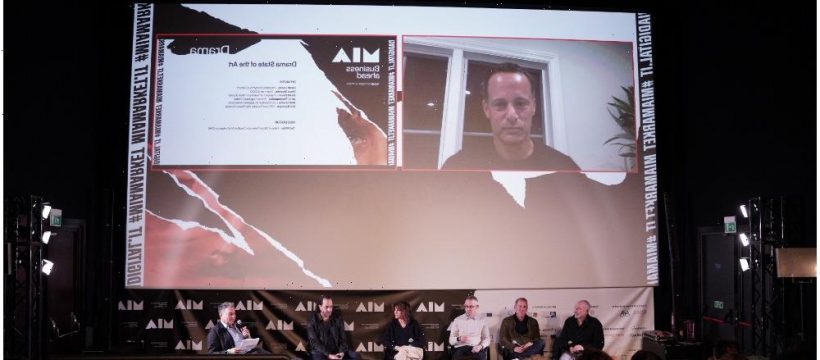It’s “Squid Game’s” world, and we’re just living in it.
That was one takeaway from a wide-ranging conversation held during Rome’s MIA Market on Saturday, as top independent producers met to assess the state of international drama and explore how hit series like Netflix’s Korean phenomenon are rewriting the rules of the game.
From heated competition between new and established streaming platforms to increasingly complicated rights deals to skyrocketing demand for non-English-language content, it’s a landscape that looks unrecognizable from even just a few years ago. Yet that’s opened the door for innovation – and more opportunities than ever before.
“The industry is ripe for disruption,” said Erik Barmack, CEO and founder of Wild Sheep Content. “I do think the room for independent producers is only going to grow.”
The former VP and head of international original series at Netflix helped shape the modern TV business, bringing “Money Heist” to the streaming giant and spearheading its drive into local production around the world.
But during his time at the company, said Barmack, some 90-95% of the projects he was pitched “weren’t fully packaged, weren’t quite constructed in a way” that could convince the streamer to take the plunge.
That shortfall ultimately prompted him to set up his L.A.-based production outfit. “I saw a need to connect the dots between what was happening in Hollywood and what was happening with a lot of producers around the world, who were incredibly talented but either not reaching the right people or not coming with exactly the right packages,” he said.
The move was indicative of an industry-wide shift in recent years. “America was a primary market for us as a company for the first 20 years. It’s now not,” said Anonymous Content president David Levine. “It’s less than 50% of the worldwide content.”
That’s prompted the indie banner behind hits like “True Detective” to forge pacts with partners like Païva Studio, a production label owned by French media group Mediawan, which is joining forces with Anonymous on the epic series “Civilizations.” “For us, it’s been an amazing opportunity to make relationships with local companies and become their American partner in the local market,” Levine added.
Finding and nurturing those partnerships requires full-time commitment, noted “Game of Thrones” co-executive producer Vince Gerardis, who last year launched his Rome-based production shingle CIAO. “Looking at specific territories in the world, you have to immerse very heavily into the culture, into the landscape…in order to be effective,” he said. “You can’t be casual about that.”
“Authenticity is really key,” added Legendary Global partner Anne Thomopoulos. “You can’t impose yourself on a territory, which is why all of us are looking toward the talent and the producers who are really embedded in the culture.”
The former HBO exec described a joint venture between Legendary and U.K. showrunners Emma Frost and Matt Graham, who last year teamed up to launch a U.K. drama production company with a 10-project slate. “It’s also about chemistry,” she said. “They have great relationships with other writers, and it’s enabled us to grow relatively quickly and also to take the temperature of that market in a way that we wouldn’t have been able to do if it was just us.”
With global streaming platforms like Netflix, Amazon Prime and Apple TV Plus continuing to pump money into original content, and emerging players like the ambitious Scandinavian streamer Viaplay looking to grow their footprints around the world, Levine noted that “there are so many different ways to sell now.
“You can sell the whole world to a single entity, but I know a lot of people that are selling territory by territory, like the movie business,” he said. “For us, the thrill in selling is almost the strategy around trying to figure out who are the best partners for a show, and it might not be the same place every time.”
If there’s any certainty in today’s global TV biz, it’s only that the old ways of doing business have gone by the wayside. “I think there’s a lot of innovation going on right now,” said Barmack. “I think there’s a lot of desire to figure out windowing in a way that gets them the best potential programming. As a producer, that’s an optimistic thing to see the studios that are associated with networks reacting to market changes – especially if we as producers can help them do that.”
As global sensations like “Squid Game” have proven, those market shifts will be a boon to creators overseas who could be developing the next breakout hit. “The mindset is changing for us [in Hollywood],” said Levine. “We’re all used to saying, ‘What do you have for us?’ And I think now we’re trying to say, ‘What can we give you?’ And I think we’re all learning from that.”
Source: Read Full Article
